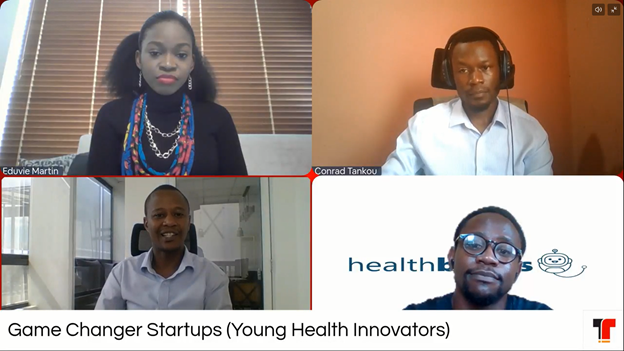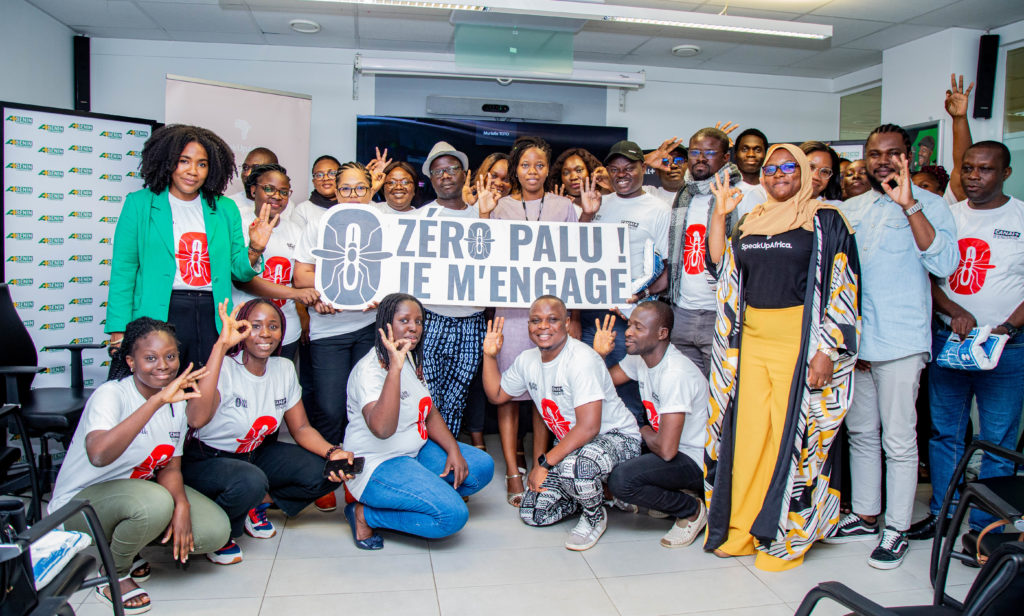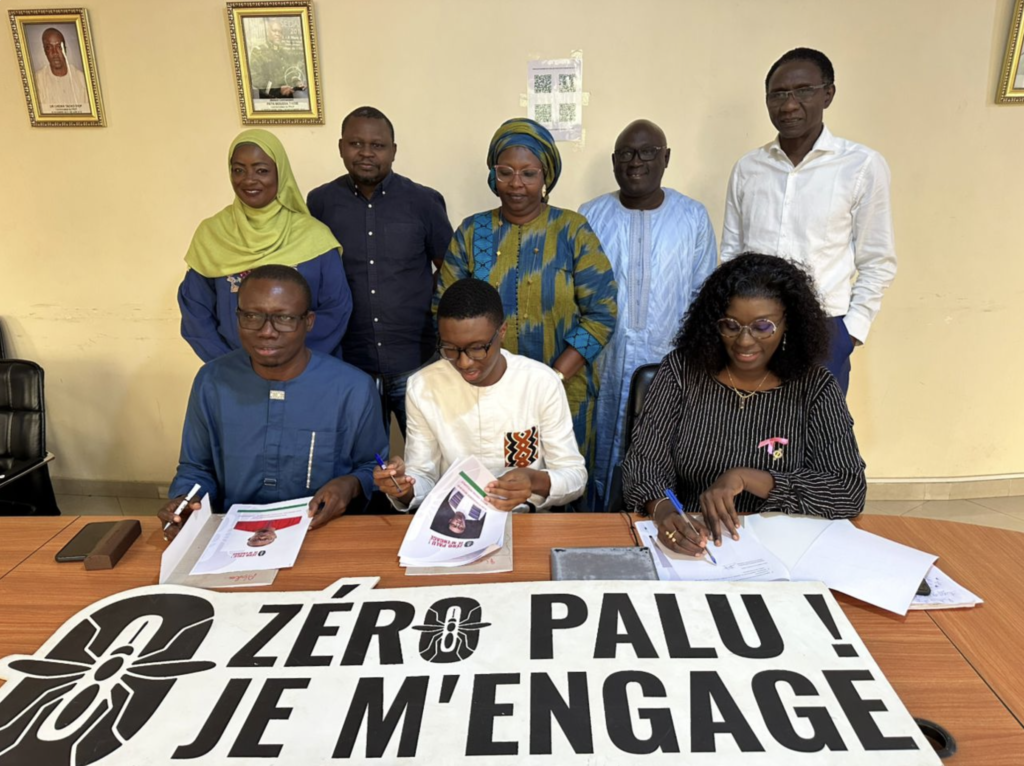Africa Young Innovators for Health at TecXposition

11 November 2021.
By the Award program team
The Africa Young Innovators for Health Award winners showcased their disruptive health solutions supporting healthcare workers working tirelessly to protect and treat the public, amidst the COVID-19 pandemic, at this year’s TecXposition annual conference.
During the game-changer session, Conrad Tankou, CEO, GIC Space (Cameroon); John Mwangi, CEO, Daktari Media (Kenya) and Imodoye Abioro, CEO, Healthbotics (Nigeria) highlighted a few of the challenges that African health workers continually face in delivering care. From overworking and fatigue, limited access to vital patient records, limited capacity building opportunities, and lack of access to the required equipment. These challenges affect the efficiency and effectiveness of health delivery leading to poor health outcomes.
“Health workers are few and are burdened. By upgrading their skills and bringing in adapted technologies, we support them to serve their patients much more effectively and efficiently,” said Dr. Conrad Tankou. Dr. Tankou’s GICMED technology is helping health workers diagnose, screen, and treat cervical and breast cancer in remote areas. This technology is promoting a system where women can access care and treatment of these cancers wherever they live.
Daktari Media’s flagship product, Daktari Online, currently supports over 15,000 Kenyan health workers’ gain appraisal and re-licensure, delivering relevant training content created by experts in easy-to-access formats and helping healthcare providers gather evidence of their learning. “We provide online training via our platform that can be accessed by anyone wherever they are, anytime to reduce critical skills and information gaps that exist between health workers in urban and rural areas,” Mr. Mwangi, CEO of Daktari Media noted.
Dr. Imodoye Abioro presented his Mediverse technology, an AI-driven electronic medical records software that allows doctors and nurses to see more patients and improve the ease of access to their medical records by inputting and retrieving patient records with their voice, working with or without internet access on any device. While presenting his innovation, he explained that their, “AI model allows voice-to-text translation based on African accents to allow doctors accurately capture observations during patient encounters and thus no more need for paper records or endless typing.” He went on to explain that Mediverse also allows patients to access and securely share personal medical information while on the go in its continued quest to improve the quality of care for patients using data.
The young entrepreneurs acknowledged the need to have more conversations within the healthcare tech ecosystem as a way to realize the various linkages and interconnections that can help in solving distribution, awareness, and scale in Africa. “From building AI systems to tech that reinforces the capacity of healthcare professionals and diagnosis, all these singular innovations, when added together in the long term, will create real social impact in Africa,” Dr. Tankou noted when talking about the convergence of all the innovations within the tech ecosystem.


